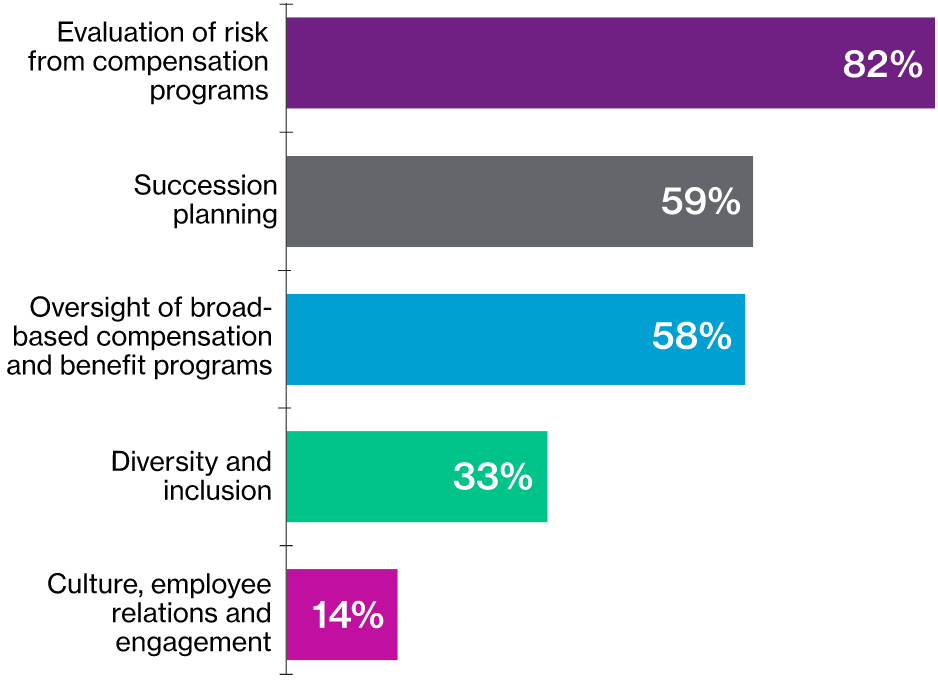Robert Newbury is Director, and Don Delves and Ryan Resch are managing directors at Willis Towers Watson. This post is based on their Willis Towers Watson memorandum.
What’s in a name? For compensation committees, it well might be a change in their identities as they take on new oversight functions for their companies’ boards.
New research from Willis Towers Watson confirms the dramatic change in the traditional role of the compensation committee as human capital management (HCM) responsibilities become more prominent.
What we found
Both the names and charters of many compensation committees have been changed to reflect how responsibilities have evolved, according to a recent study of S&P 500 companies’ charters and committee names conducted by Willis Towers Watson’s Global Executive Compensation Analysis Team. In fact, our study indicated some noteworthy findings:
- Nearly 40% of the S&P 500 (192 companies) currently refer to the committee responsible for executive compensation oversight as something beyond just the compensation committee.
- Over half of the companies require committees to maintain oversight of broad-based compensation programs and benefits.
- One-third of the companies have given the committee diversity and inclusion program oversight.
- Only 14% of the sample had oversight of employee culture, employee relations and engagement, but when the compensation committee’s name was broadened to include additional responsibilities, these charges are included in charters at a rate six times higher than at companies using the traditional term of compensation committee (24% versus 4%).
As committee charters have evolved, so too have the names for the committee responsible for oversight of these issues, our study found. In the past 10 years, 45 companies (9%) changed the name of their compensation committee to reflect a broader overview of HCM issues. The more recent interest in broader HCM issues has accelerated the rate of name changes, increasing nearly 2.5 times in the past four years over the four previous years; 26 companies changed their committee name in 2016 to 2019 compared with 11 companies from 2012 to 2015). Figure 1 provides a breakdown of the common committee name variants used by these S&P 500 companies.
The largest companies are often trendsetters for smaller peers, so we examined the current compensation committee charters of the 100 largest S&P 500 companies to see if a broader overview of HCM issues was included.
While succession planning and risk assessment of compensation were common responsibilities outlined in committee charters, several companies included broader HCM issues as part of the committee’s oversight. Figure 2 provides an overview of common responsibilities or areas of oversight included in compensation committee charters.
New expectations, new responsibilities
Our survey findings affirm the changes that have been developing for some time. For decades, compensation committee names have been coupled with governance and nominating committees, and succession planning and leadership development have been viewed as a more traditional responsibility of the executive compensation committee.
However, questions from investors, employees, customers and regulators have pushed companies to examine the breadth of the compensation committee’s oversight. In many cases, committees have expanded their charters to include oversight of issues not traditionally specific to executive compensation: employee relations, company culture, and oversight of broad-based compensation and benefit programs, to name but a few.
What is the future of the compensation committee?
As the role of the compensation committee continues to evolve to include more HCM-related issues, it will be interesting to see if and how companies adapt the charters for the committee responsible for the oversight and whether the names given to the committees further expand to signal to expanded scope to external stakeholders.
 Print
Print
